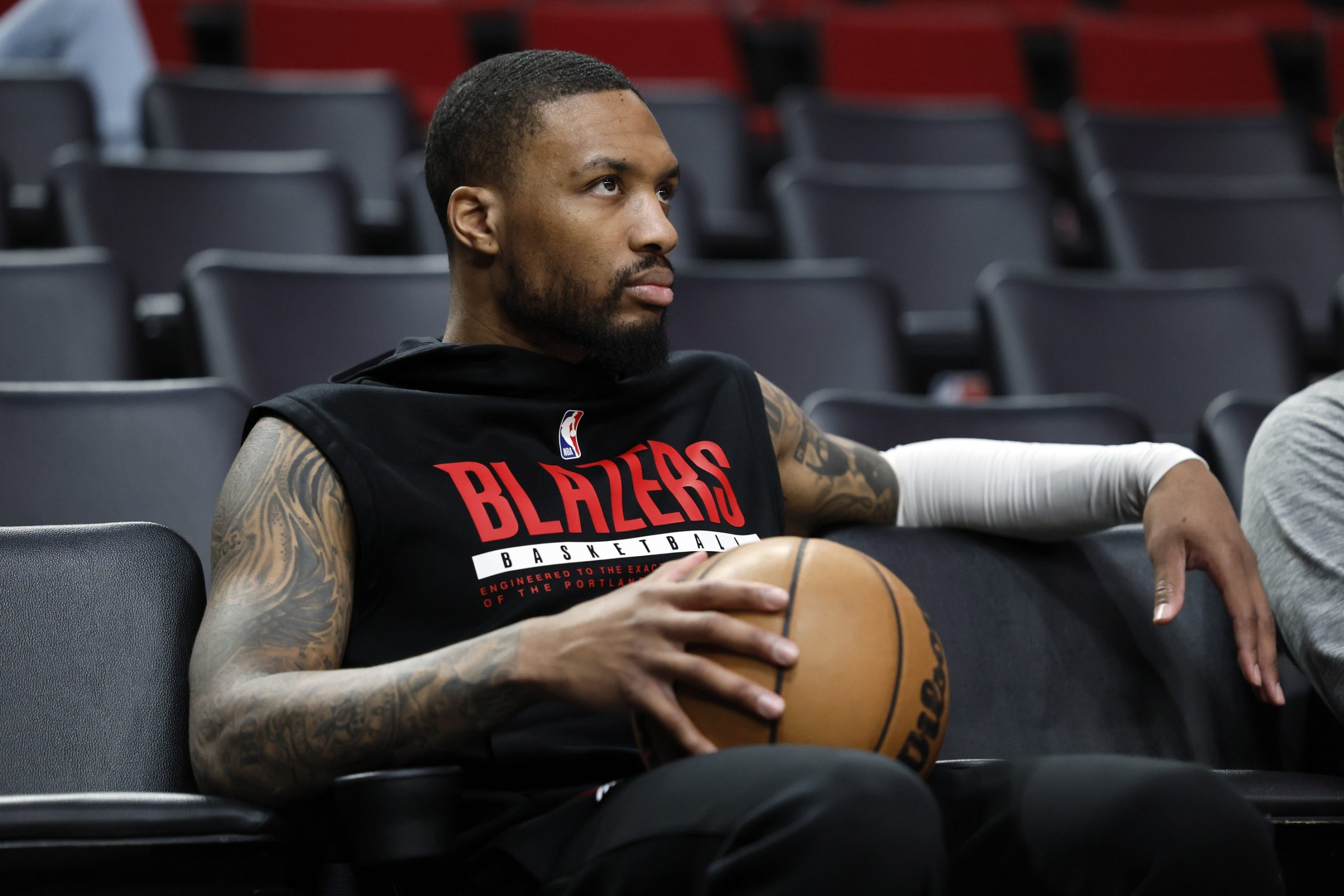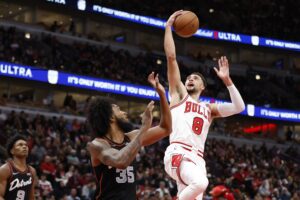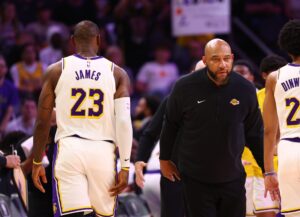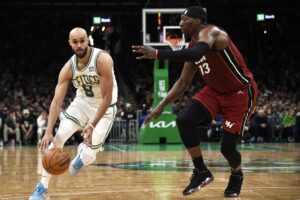With the NBA offseason’s most boring stretch fully underway, the trade block and potential transactions is what’s front and center of the majority of basketball discourse.
The Decline of NBA Stars Trade Value
Current NBA Trade Market
As known to most, the main NBA trade prospects being discussed right now involve Portland Trail Blazers guard Damian Lillard. Lillard, who famously requested a trade earlier this summer, is an All-NBA and All-Star talent, all while being one of the best scorers in the league today. Thus, it makes sense that any trade involving him would require opposing parties to give up a hefty return. Right?
Wrong.
Lillard’s trade request was directed towards the Miami Heat, specifying that he would not play for any other organization. This only further complicated the situation for Portland, snatching away all of their trade leverage in the process. To further complicate matters, the Blazers also announced that they had no interest in Heat guard Tyler Herro. Of course, the Heat’s ideal offer was one involving Herro. Thus, both teams had to go back to the drawing board. The Blazers will now have to settle for some combination of unproven prospects, and rather useless draft picks. A rather meager return for one of the NBA’s best players at the moment.
So how did this happen? Wouldn’t an NBA trade involving a star trading a star typically return you numerous usable assets?
Not anymore. One must remember,
it’s 2023 now.
Gone are the days in which trading your best player, gives you multiple pieces to work with. Blockbuster deals such as the Boston Celtics acquiring Kevin Garnett for 5 players and picks, are now long gone. Even trades such as the Celtics trading Garnett and Paul Pierce to the Brooklyn Nets for role players and picks alone, are now a fragment of the past.
This shift in the trade market can likely be attributed to the ever-changing social landscape of the NBA. Nowadays, players have a significantly better understanding of the business than those who came before them. They understand that teams will do away with them asap in a beneficial trade scenario. As a result, they feel it’s best they take matters into their own hands. This way they avoid experiencing “betrayal”, or the sudden trades that happen out of the blue.
The Truth Behind Trade Requests
The NBA, despite its multi-million dollar promise, can at times be fickle–just like any other industry. Players who’ve spent their careers working their tail off for an organization, will find themselves re-located across the country in just a days time. It was only a matter of time before players realized that something had to change. This was where the concept of a “trade request” was officially born.
When a player makes a trade request, it effectively cripples the organization’s control over a trade. Now, potential suitors are aware that their desired client is unwilling to play for their franchise. Obviously, this is going to turn them off from making a deal. It’s then guaranteed that the players desired destinations are the only one’s that’s left. The player now will most likely go someplace they initially had hoped for, sparring them of the once-painful process. Their old team loses all leverage in the transaction, and is forced to settle for whatever the other team is willing to offer. This idea is what set the precedent for the NBA trades that you see today.
The Results
It is definitely valid that, after years of teams trading their players so easily, this change might’ve been necessary. Teams have been forced to comply to the players requests and send their player where they wish. If they don’t, this instantly puts a black mark on the organization’s name. Word will spread amongst players, who will now think of the franchise as one that doesn’t respect its players–as in, they will no longer consider the team as a viable free agent or trade destination. It’s certainly not a good look for a team looking to rebuild by trading its top hoopers.
Real Life Examples
So, teams no longer have much of a choice. There are numerous recent examples of this happening as well. Deals involving the Washington Wizards trading Bradley Beal and the Nets trading Kyrie Irving, met similar fates. The Wizards ended up swapping out Beal for a 38 year old Chris Paul, and other filler players and second-round picks. The Nets parted ways with Irving for Dorian Finney-Smith, Spencer Dinwiddie, and picks that won’t take effect for years. As presumed, these deals were not ones the organization would’ve wanted at first. They were simply all they could get.
Another reason behind this recent change is that players no longer tend to play out their contracts. Due to the newfound power to dictate their career, players are more inclined to simply demand another trade as opposed to waiting until free agency. James Harden is the best way to describe this, dating back to when he left the Houston Rockets. Harden, who initially wanted a trade to the Nets, ended up asking for a second trade to the Sixers a year later. Another second round exit later, Harden has requested a third trade to a new team. The best way to describe the current state of the NBA trade market, in a nutshell.
The Last Word
Waiting until free agency hits to acquire new talent used to be the best course of action. Now, it’s almost a last-second resort. Players are demanding trades left and right, leaving their organization without much room to operate. Hence why trading a star is no longer likely to fetch their team a sizable package in return. In fact, it’s the opposite. Organizations are forced to accept what they CAN get, as opposed to what they COULD get.
Is this change in the league for the better though? Or the worse? Well, that’s a discussion for another time. All that can be said right now, is that the NBA trade market is not what it used to be. This is only likely to trend in the same direction as time goes on. Teams now have to scramble to please their players, or risk losing them for chump change. A complete reversal from old times.






